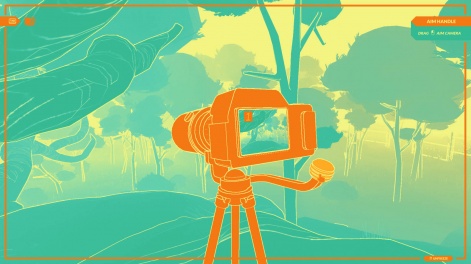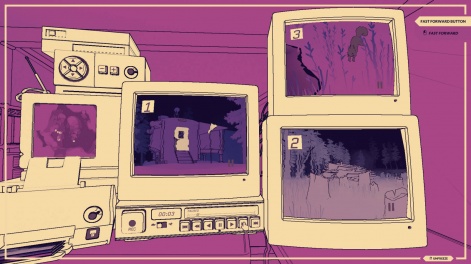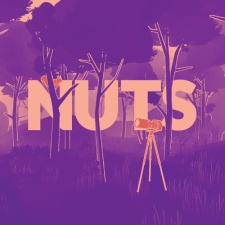The process of creating a game is difficult, long, and often stressful, but it's one that can reap many rewards alongside actually seeing your ideas come to life.
No matter the size of the game or how long it ultimately takes to make, each new title involves a lot of hard work, tough decisions, and a little bit of luck before it even gets out the door and onto devices. And in the current mobile and handheld games market, that's only the first step to making the title succeed.
To highlight all of the extensive work that often goes on unseen in the background, PocketGamer.biz is reaching out to developers to learn more about the general rigmarole of releasing a video game, with our 'Making Of' series.
This week, we spoke with game designer Jonatan Van Hove surrounding the development of Nuts - A Surveillance Mystery, the Apple Arcade and Switch title published by Noodlecake Studios.
PocketGamer.biz: Can you start off by telling us about Nuts – A Surveillance Mystery?
Jonatan Van Hove: Nuts is a game about surveilling squirrels in a forest. You set up your cameras by day, on tripods with precise aiming controls, and then you watch the recordings at night on multiple screens. If you've set up your tripods correctly, you'll see squirrels scampering about on your screens.
Your mission is to figure out exactly where the sneaky little creatures go. The story of the game follows your surveillance to its mysterious conclusion, but there are also stories about the characters, the world and the elusive little squirrels.
Where did the initial idea for the game come from?
A few years ago, Torfi (co-designer and developer) and I wanted a fun hobby project to work on together, so we started experimenting with a first-person controller and with having cameras and televisions in the world of the game. It was strangely compelling to see the same game-world through different lenses at the same time. It was also very abstract and hard to see how it could be incentivised in a gameplay loop.
At a game jam in this period, I challenged myself to come up with a mechanic using the in-game cameras. I got a forest together pretty quickly, threw some visual effects in there and the ability to move and aim the cameras, and then started thinking about what would make a good subject. Squirrels were such an obvious choice that it was almost too good to be true. They parkour their way across trees, rocks, bushes and the idea of trying to get them on camera was appealing.

I was very inspired by a little jam game that Lucas Pope made called The Sea Has No Claim, where you need to search for and rescue shipwreck survivors. You need to commit a bunch of equipment that works in various ways to a map, and then you get to see the results play out. This hugely influenced our day/night cycle, and suddenly everything clicked into place mechanics-wise.
How long did development take, and how many people worked on the game?
The jam version was created in January 2018 and I was not committed to any projects at the time, but I needed to find something rather soon. I pitched a bunch of different projects around - including Nuts - but eventually got Don’t Trip signed with Noodlecake, and nothing else was looking like it would work out. I was really excited about both games, so decided to get Don’t Trip out the door but also keep the flame alive and work on my pitch for a year.
It was strangely compelling to see the same game-world through different lenses at the same time.Jonatan Van Hove
After that, Noodlecake let us know they were accepting pitches for games again and we have always been very happy with them. Pol Clarissou was the highest on my list of people I wanted to work with, specifically for Nuts. Inspired by teams behind Minit and Disc Room, we decided to steer clear from starting a studio but rather see it as a collaboration between artists who each have a strong identity and to play to each member’s strengths.
We kept on getting lucky because everyone we wanted to work with was available and excited, so Muuutsch (Almut Schwacke) joined and took care of all things audio, as well as Charlene Putney who did the writing and narrative design. All in all that made five people (not all full-time) working for about a year and a half. We also had some excellent collaborators like Marín Björt Valtýsdóttir, Freya Holmer, Ronja Böhringer, and Kalonica Quigley.
Did the team do a lot of studying into the behaviour of Squirrels for the project?
We did do research of course, but the rabbit-hole of learning about your subjects goes very deep and ultimately, we decided to steer away from any specific species or locations because we didn’t want to misrepresent anything and it wasn’t critical to the design that these locations exist.
There is a large number of good videos about squirrels on YouTube, going from 70’s Attenborough to 2020’s Mark Rober, that helped a lot in finding out what we want them to look like and how they should behave. We ended up working with Kalonica Quigley to really bring the squirrels to life, exploring all the possible ways the animal could look and move and together we selected the ones we liked the most.
What was the biggest challenge you had to overcome during development?
We realised at some point that our levels were little more than just a pile of models, but didn’t really interact very well with the squirrels or with the player. Spending time on that revealed that our toolset for improving this was not very powerful and that in general, the toolset to create natural environments (as opposed to urban) is very limited in general.

Add to that supporting Steam, Apple Arcade and Switch and there are a lot of technical costs that we underestimated. But even bigger than that, the design of Nuts was not clear at all when we started working on it first. I was originally drawn to the immersive sim genre, where there would be less emphasis on the story and more classic game rewards like points or money for achieving your goals.
The game went through several different versions, and 18 months is not a lot of time to pivot. The biggest challenge was that we committed to a hard deadline, without having planned out the work completely.
At what stage in development did you feel you had a game that you were happy with?
It finally came together in the spring of 2020 when we decided on the overarching structure. We had so many loose ideas and dozens of individual segments of the game that we thought was interesting but that was not stitched together very well.
Just in time for the June 2020 Steam Festival Demo, we decided to just take one area and make a “vertical slice” of all the parts we cared about. We froze the work on the mission generator and squirrel AI and hand-crafted the entire sequence, interspersed it with narrative moments and a plot twist at the end.
We managed to get it on Steam only just in time for the festival, with no idea what people would think. The reaction was really, really encouraging, and we decided immediately that this was the right path for the game.
The biggest challenge was that we committed to a hard deadline, without having planned out the work completely.Jonatan Van Hove
How did the partnership come about with Apple Arcade?
Noodlecake has published my last three games (Try Harder, Invert and Don’t Trip) and I really loved working with them. There is a lot of trust, transparency and understanding therefore we’ve always collaborated smoothly, which is a huge deal for me as I’m a bit of a conflict avoider. I pitched the version of Nuts with Pol involved and they took it into the conversation with Apple.
We didn't have any expectations whatsoever, since the game was so unconventional. It seemed to work for people on the receiving end however, and they asked us to flesh out the pitch and create more detailed planning.
As the game has launched on Nintendo Switch (and PC) now, can you tell us about the process of porting to the console?
Noodlecake matched us with Plastic Fern, an experienced development team that had time to port Nuts to Nintendo Switch in parallel with the other platforms. We also worked with Popagenda which supported us with submitting the game to Nintendo.
Nuts might look simple, but it was a big task to get it to run at a stable framerate on the Switch. With the multiple camera feeds, we designed ourselves into a bit of a bottleneck as the amount of calculations and rendering that needs to be done is effectively quadrupled in our game compared to most other games. Sure, we are not using lighting or shadows which are known to be expensive, but the outline-effect that defines the game’s visual aesthetic is also kind of disgustingly expensive for the GPU.
We made the decision of letting them make changes to the master branch of the game, which means that the Apple Arcade version benefited from some of their optimisations and vice versa, but it was still a lot of work.
Has the Covid-19 pandemic impacted ongoing development in any way?
The psychological impact of living in a pandemic is difficult to quantify or even talk about, so I think we were absolutely impacted in some way. Fortunately, we had started as a fully remote team and the office in Iceland (where I work with Torfi) only closed for a few weeks during the first lockdown, meaning we could keep working.
We also tried to set up collaboration in a way that people worked and contributed what they could, when they could. I’d like to think this created a supportive atmosphere within the team.
What can you tell us about your plans in terms of updates?
Apart from bug fixes and compatibility patches that are coming throughout February (and onward as needed), it all depends on how well the game does for us financially. If the game allows for me to keep working on it for a bit I have a few ideas in mind.
I’m personally excited to bring the squirrel AI and procedural mission generator back, as it was a way for me to still be surprised by the game. I don’t think we’ll do a narrative sequel, considering how the game ends. We’d love to flesh out the world some more though, so who knows. Maybe you’ll get to play as Nina from the past one day. Muuutsch, the composer, is also planning to release the OST.
What can you tell us about your future projects?
I know some of the team members have moved on to other projects already. Personally, I’ll be taking a break as soon as the release and patches don’t require constant attention. What I’ve learned from the project is that I liked this length, and this type of game and team constellation. I doubt I’ll be as lucky as we were with Nuts so next time it would be cool to work on someone else’s game for a change.






















